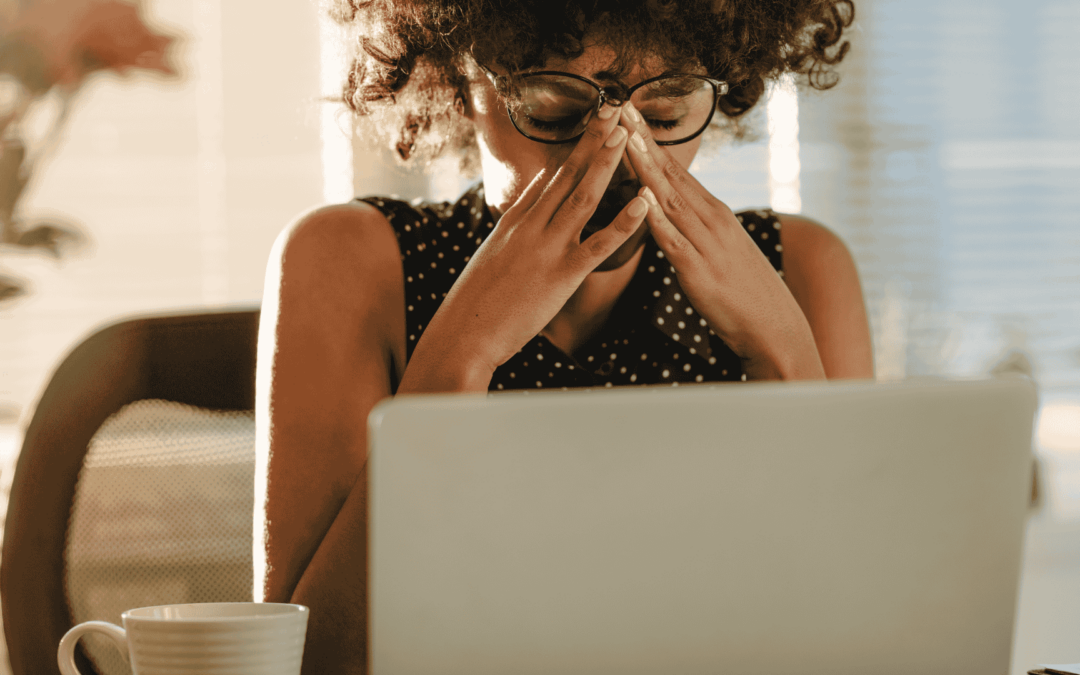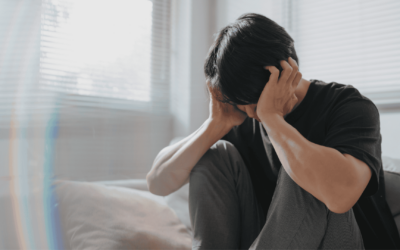Do you strive for perfection? Have you been feeling overwhelmed but unsure why? You might be experiencing high-functioning anxiety, a silent struggle that often goes unnoticed. Despite appearing successful in your personal life or career, this type of anxiety can impact your well-being and may warrant a search for an anxiety therapist near me in Simi Valley.

Anxiety is common. Research shows women are more prone to anxiety disorders than men due to biological, psychological, and social factors. For parents, fear of judgment and the need to appear perfect can worsen anxiety, making them hesitant to seek help. Anxiety can affect anyone, and acknowledging it is the first step to understanding and managing it.
Seeking professional help is crucial for managing mental health. Searching for an “anxiety therapist near me (Simi Valley)” can connect you with experts who understand anxiety. Here at Simi Psychological Group, our therapists can guide you toward effective coping strategies. In this article, we’ll explore subtle signs of anxiety and offer practical ways to recognize and
How to Recognize the Signs of Anxiety
One of the biggest challenges with anxiety is recognizing it for what it is. Often masked by traits like perfectionism, overachievement, and a relentless drive to meet personal standards, these behaviors are mistakenly praised instead of identified as potential red flags. If you’ve been noticing these signs for a while or if they feel like they overwhelm your life, it’s time to seek professional help for your anxiety.
Common Hidden Signs of Anxiety Include:
- Always feeling a little “on edge” but keeping a calm appearance
- Overthinking and second-guessing your choices
- Wanting to stay busy or productive all the time
- Keeping emotions bottled up to look composed
- Experiencing unexplained physical symptoms like muscle tension or aches
- Having trouble sleeping because of racing thoughts or difficulty relaxing
- Seeking constant reassurance from others about what you do or decide
- Feeling uncomfortable in social settings, leading to withdrawal or avoiding them
- Putting off important tasks because of fear of not meeting expectations
Anxiety Caused by Societal Pressures
Social media plays a significant role in pouring fuel on the fire of anxiety, offering a constant stream of comparison and perceived inadequacy. Alongside this, general societal pressures such as career demands, financial stress, and the drive for excellence also contribute to increased anxiety levels. These pressures affect teens, adults, and parents alike.
Below are other examples of how anxiety can be exacerbated by societal pressures:
- The pressure to excel academically and keep up high grades can sometimes make students feel anxious – no matter what age.
- The push to succeed in a career and achieve financial well-being often brings stress
- about job performance and career growth.
- Social media can amplify feelings of inadequacy by constantly showing idealized versions of others’ lives.
Check out, “The Impact of Social Media on Mental Health” to dive deeper.
- Societal norms and beauty standards can affect self-esteem and cause anxiety about appearance.
- Juggling work and personal life can be stressful, especially for families aiming for a balanced lifestyle.
The Difference Between Stress and Anxiety
Given the current climate of global issues, many of us face stress, financial woes, and loneliness. It’s vital to distinguish between stress and anxiety to manage them effectively.

Stress is usually a temporary reaction to a specific situation, while anxiety lingers without a clear reason. Here are ways to identify if you are experiencing stress or anxiety:
Trigger Source
Stress comes from identifiable external triggers like work deadlines or exams. Anxiety often arises without clear triggers, stemming from internal fears.
Check out “How to Manage Work Stress” if this sounds like a familiar trigger to you.
Duration
Stress is short-term, fading once the stressor has passed. Anxiety can be chronic, lasting weeks or months.
Physical Symptoms
Stress causes increased heart rate or tense muscles, which ease with relaxation techniques. Anxiety results in persistent fatigue, restlessness, or insomnia.
Impact on Life
Stress may affect performance but can motivate problem-solving. Anxiety impairs daily life, affecting decisions and well-being. This is often referenced as “analysis paralysis.”
Read more about analysis paralysis it on, “When Anxiety Interferes with Decision Making.”
Recognizing subtle signs of anxiety is challenging, as they blend into daily life. Being mindful of these signs helps early identification, allowing you to seek support and prevent serious outcomes.
“It’s time to redefine strength. Seeking help doesn’t signify weakness—it’s the first step toward self-empowerment and healing.” – Dr. Donna Novak
Mastering Your Anxiety

Identifying the signs of anxiety is the first step in tackling it. Learning to manage anxiety is the next step to help you regain control. Here are some tips to help you manage anxiety once you’ve identified it
Establish a Routine
A consistent daily routine provides structure, helping to manage anxiety.
Exercise Regularly
Physical activity releases endorphins, improving mood and reducing stress. Even a short walk or yoga session daily can significantly impact anxiety.
Implement Relaxation Techniques
Practice deep breathing, meditation, or relaxation exercises to reduce tension and improve emotional control.
Seek Professional Help
When anxiety becomes difficult to manage alone, anxiety therapy with a mental health professional can provide valuable skills and techniques that are specific to you.
Anxiety Therapy in Simi Valley
At Simi Psychological Group, we provide anxiety therapy and other services near you in Simi Valley. For additional support, we offer a Women’s Anxiety Group where participants find solace in shared experiences and mutual support, empowering one another toward personal growth and transformation.
Discover how we can assist you on your journey to managing anxiety. Give us a call at (805) 842-1994 or contact us today to start your path to healing. Together, let’s break the silence around anxiety and foster a future where mental health is openly acknowledged and supported, one step at a time.

Dr. Novak is the group practice owner and licensed psychologist at Simi Psychological Group a therapy practice in Simi Valley, California. Simi Psychological Group offers a variety of services including trauma therapy, couples therapy, anxiety therapy, teen therapy, and more. Simi Psychological Group emphasizes the importance of creating real change by making sure to get to the root of your struggles.




